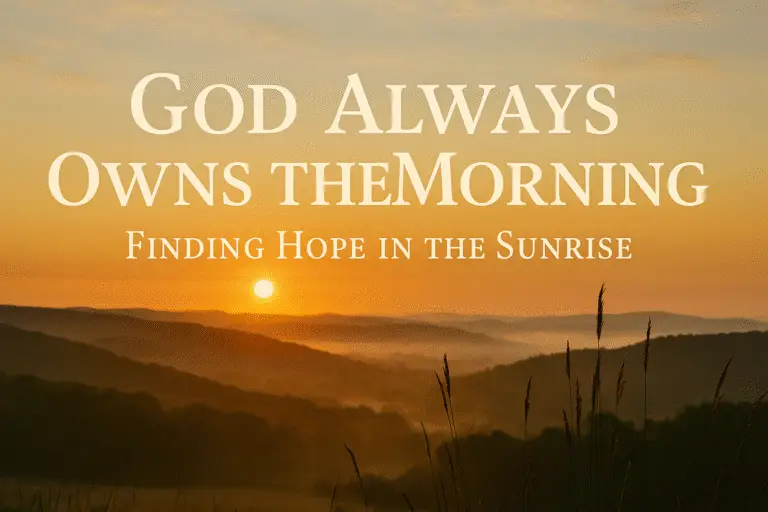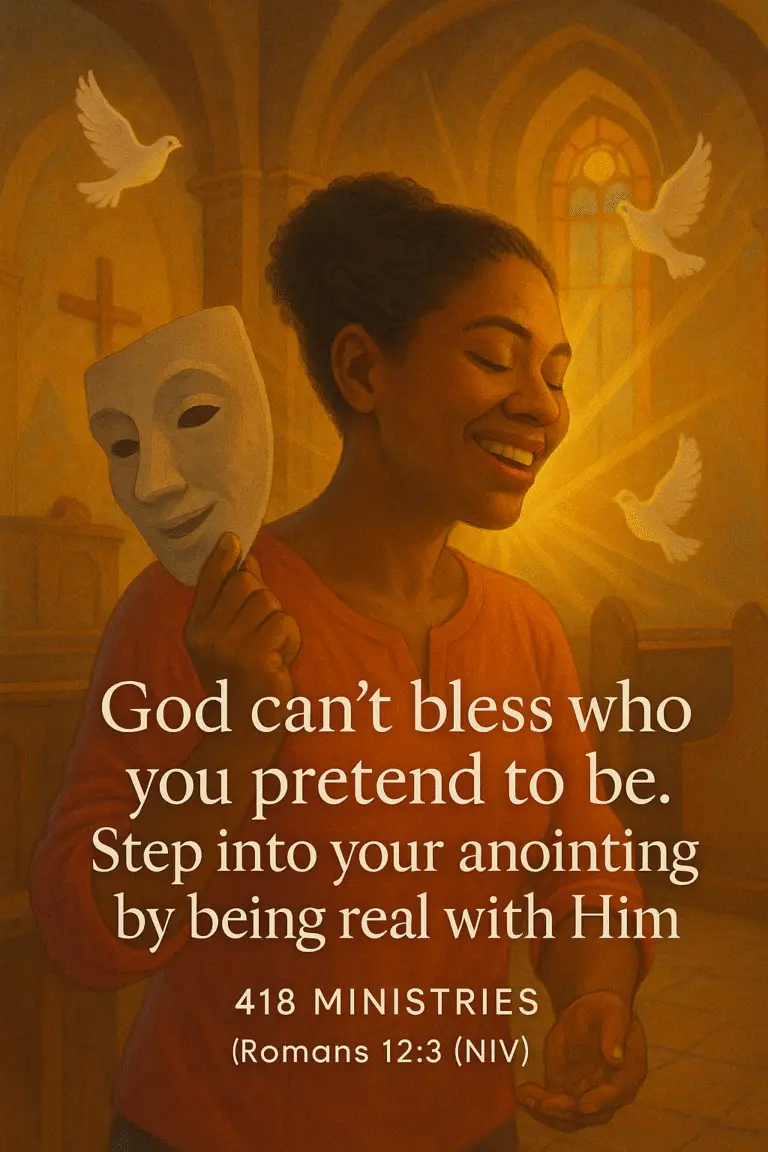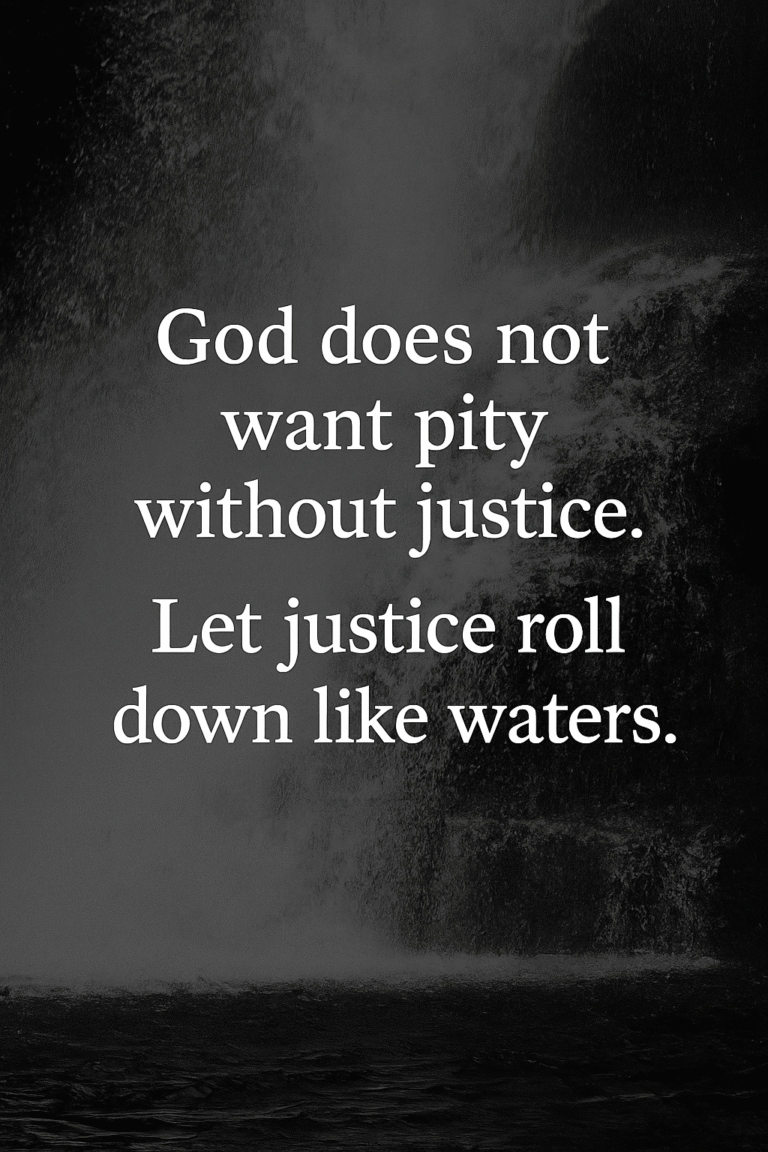The Church Jesus Intended: A House for All People

“My house will be called a house of prayer for all nations.”
— Isaiah 56:7, quoted by Jesus in Matthew 21:13
There’s a groaning in the Spirit today. A sound rising from the margins of society. It’s the cry of the ones left out, pushed aside, and told—explicitly or by silence—“You don’t belong here.” And let me tell you, church: that cry has reached the ears of God.
I need to speak the truth today, not soft platitudes. I come with the fire of a preacher and the urgency of a prophet. We are in a season of reckoning—and the Spirit is calling the church to account. During these trying times, the Spirit is saying whose side are you on? Far long many have confused holiness with exclusion. Too many have traded the cross for comfort zones. But the Jesus we say we follow broke barriers, sat with outcasts, touched the untouchable, and called out the religious elite for their hypocrisy. If our churches aren’t doing the same, then we are not the church Jesus intended.
God’s Love Has No Walls
Let’s get one thing straight: God’s love does not discriminate. It does not ask for documentation. It does not screen for background checks. It does not ask about your sexual orientation, mental health diagnosis, criminal record, or the balance of your bank account. The love of God, revealed in Christ Jesus, is for every single human being made in God’s image. That includes:
- The poor, who are often overlooked unless they can offer a testimony that “proves they’ve made it.”
- The mentally ill, who are prayed over but not sat next to.
- The incarcerated, written off as irredeemable, while Jesus said, “I was in prison and you visited me.” (Matthew 25:36)
- The sick and disabled, who are either used as proof of miracles or ignored altogether.
- The immigrant, especially the undocumented one, who is often seen as a problem instead of a person.
- The racially marginalized, whose pain is too often dismissed with silence or spiritual bypassing.
- The LGBTQ+ child of God, told to change or leave, when Jesus said, “Whoever comes to me I will never drive away.” (John 6:37)
Let me be clear: when we exclude these beloved of God, we are not upholding holiness—we are standing in opposition to the heart of Jesus.
Jesus Didn’t Build a Country Club—He Built a Kingdom
You know who Jesus got angry with? The Pharisees. Not the poor. Not the prostitute. Not the leper or the tax collector. Not the Samaritan. Not the Gentile. But the religious elite—those who thought their knowledge of Scripture gave them the right to judge, exclude, and control access to God.
Jesus rebuked them, saying:
“You shut the door of the kingdom of heaven in people’s faces. You yourselves do not enter, nor will you let those enter who are trying to.” (Matthew 23:13)
God help us if that’s what we’ve become.
When we turn people away—because they are undocumented, queer, mentally unstable, covered in tattoos, or don’t know the “Christian lingo”—we have become more like the temple system Jesus overturned than the Spirit-filled church He inaugurated at Pentecost.
Let’s remember what happened when the Holy Ghost fell in Acts 2:
“In the last days, God says, I will pour out my Spirit on all people… Even on my servants, both men and women, I will pour out my Spirit.” (Acts 2:17–18)
All people. Not just straight people. Not just citizens. Not just able-bodied folks. Not just the clean-cut. ALL people.
That’s the church I want to belong to and long for.
Jesus Sided with the Marginalized—Always
Jesus went out of His way to break boundaries. He crossed lines that polite religion never would:
- He touched the leper (Mark 1:41).
- He praised a Roman centurion’s faith (Matthew 8:10).
- He forgave the woman caught in adultery and refused to condemn her (John 8:11).
- He spoke with a Samaritan woman with a complicated past (John 4:7–26).
- He ate with sinners and tax collectors (Luke 5:29–32).
- He welcomed children (Mark 10:14).
- He healed on the Sabbath to show that mercy outweighs tradition (Luke 13:10–17).
- He included an Ethiopian eunuch in the baptismal waters without question (Acts 8:26–39).
Jesus didn’t build fences—He tore them down.
So why are we rebuilding them? To be the Church Jesus Intended
The Spirit Is Calling for Repentance
We need to repent—not just in word, but in action. Repent of the times we’ve said, “They’re welcome here,” while subtly signaling they should stay silent, change, or hide their true selves.
Repent of our silence when our sisters and brothers of color cried out.
Repent of ignoring the mother who can’t afford her medications.
Repent of demonizing those with mental illness instead of walking with them.
Repent of allowing our pulpits to become platforms for exclusion instead of proclamations of grace.
The prophet Isaiah didn’t mince words when speaking for God:
“Is not this the kind of fasting I have chosen: to loose the chains of injustice… to share your food with the hungry… to provide the poor wanderer with shelter?” (Isaiah 58:6–7)
Let me tell you something: real holiness looks like justice. It looks like mercy. It looks like compassion with hands and feet. It looks like advocacy, not apathy. Love is not love unless it shows up in how we treat the most excluded among us.
To the Excluded: You Belong
To my LGBTQ+ siblings, my undocumented neighbors, my formerly incarcerated brothers and sisters, the weary single moms, the anxious and depressed, the outcast and overlooked—hear me today:
You belong.
You belong in the church. You belong at the table. You belong in the Body of Christ. The Church Jesus Intended
Jesus isn’t waiting for you to be “fixed” to love you—He loves you now, fully and eternally. And I, as His servant, say with holy boldness: Come home. Come back. Come with your scars and questions. There’s a seat for you.
And if the church you walked into said otherwise, they were wrong. Period.
The Church Jesus Envisioned
Jesus didn’t say, “Build me an exclusive space for the morally elite.” He said, “Go and make disciples of all nations.” He said, “Whatever you did for the least of these, you did for me.” (Matthew 25:40)
And when John the Revelator saw heaven, he saw a great multitude—“from every nation, tribe, people and language, standing before the throne and before the Lamb.” (Revelation 7:9)
That’s not diversity for optics. That’s the heart of God.
If our churches don’t reflect that vision—of all people, all backgrounds, all stories, all scars—then we are building monuments to our own comfort, not movements of God’s Spirit.
Let us repent. Let us repair. Let us rebuild.
Let the Doors Be Thrown Open
Church, throw open the doors. Not just physically, but spiritually, emotionally, and doctrinally. Let us say with full conviction:
- If you are gay, straight, or questioning—you are loved here.
- If you have a past, a record, or a secret—you are welcome here.
- If you are sick in body or mind—you are safe here.
- If you are poor, homeless, or without status—you are seen here.
- If you’ve been hurt by the church—you are heard here.
Because this house—this house—will be a house of prayer for all people. For that is the church Jesus died to birth, the church the Holy Spirit came to empower, and the church this world is still desperately waiting to see.
Let us be that church before it is too late. The Church Jesus Intended


